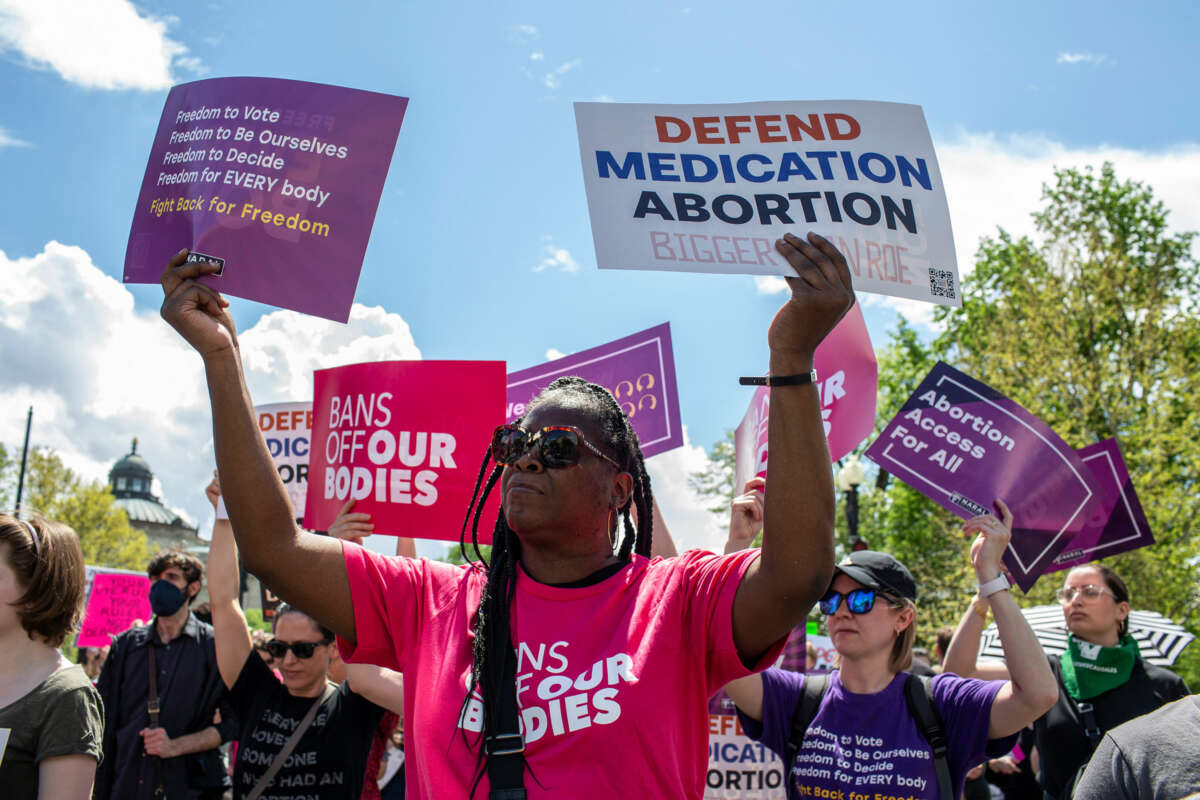Olympic sprinting gold medalist Frentorish “Tori” Bowie had a bright future ahead of her, but at 32 years old, her life was cut short. Tori likely died of preeclampsia, according to medical reports. Her death comes amid a spike in maternal mortality across the country since 2021, in particular for Black women.
Witnessing another Black woman lose her life during childbirth sends chills up my spine. It is a sobering reminder of the unfair risk I must shoulder. In order to bring life into this world, Black women must contend with the likelihood of untimely death in the process.
Black women face exceptionally high pregnancy-related complications: They are three times more likely to die during childbirth compared to white women. Systemic issues — such as health care providers’ racial biases and access to adequate health insurance coverage — are contributing factors. These gaps in reproductive health care are present long before pregnancy for Black women. For example, research highlights that more than half of Black people don’t receive information detailing all their reproductive options from health care professionals. Notably, these disparities persist across class and educational background for Black women. Black women like Tori, who do have access to high-quality health care, are far from exempt from these issues. These disparities similarly affect Black birthing people of other gender experiences as well. Black gender-diverse pregnant people must also confront systemic racism and specific forms of gender discrimination.
Black celebrities have come forward in the past years to share how scary their pregnancy experiences were. Iconic singer Beyoncé, world-class tennis player Serena Williams and Olympian Allyson Felix have all publicly shared their health complications during pregnancy. All have also expressed feeling ignored by their health care team when discussing their concerns. Reading these headlines forces me to wonder that if doctors won’t listen to well-known and well-resourced celebrities, then what does that mean for the everyday Black woman?
Unfortunately, as Black maternal deaths spike in the U.S., we are also witnessing abortion bans and restrictions to roll back key reproductive rights. Abortions and childbirth may seem contradictory, but in reality, they are deeply related as parts of reproductive health. It is no coincidence that the states with the highest Black maternal death rates are also states with the harshest abortion restrictions. Abortion bans also disproportionately affect people of color. This is why I find it frustrating to witness silos between conversations surrounding abortion rights and maternal health. In reality, abortion services and maternal health are two sides of the same coin: reproductive justice.
In order to bring life into this world, Black women must contend with the likelihood of untimely death in the process.
Black feminists in the 1990s were also frustrated by this narrative of abortion care as a “choice” without acknowledging the complexity of access to a wider range of reproductive resources. A movement for reproductive justice emerged to emphasize these important interlinkages and the realities of women of color. For Black women, abortion care is one piece of the puzzle in achieving our reproductive rights. Black maternal health is also linked to accessing contraception, sexual education, STI [sexually transmitted infections] prevention and treatment options, and prenatal care. When conversations around abortion care are siloed from other reproductive resources, we miss the bigger picture and fail to see the true impact of anti-choice policies.
As a young Black girl growing up in the South, I witnessed the link between abortions and maternal health all around me, as I struggled to access reproductive services. In South Florida, sexual education was inadequate, and without parental support, most contraceptives were difficult to receive. Without these important resources, unwanted pregnancies were a scary reality. I saw firsthand how poor sexual education is linked to higher rates of unwanted pregnancies and poor maternal health outcomes.
I’ve also seen how attacks on reproductive health centers affect access to all reproductive services. For underserved communities like mine, Planned Parenthood offices were the first line of care for receiving all forms of reproductive care, from pap smears and contraception to prenatal care. As reproductive health centers shut down, communities lose hubs for all kinds of reproductive resources.
The states with the highest Black maternal death rates are also states with the harshest abortion restrictions.
OB-GYNs are also leaving conservative states in droves because they are hindered from doing their jobs due to strict abortion laws. With fewer OB-GYNs, Black mothers are even more likely to suffer complications and preventable deaths. Moreover, when pregnancy complications occur, abortion bans hinder health care providers’ ability to give necessary medical intervention. A doctor’s hesitation to administer an abortion during pregnancy complications has cost pregnant people their lives. As Black women are already at risk, abortion bans magnify this issue.
I mourn the loss of Tori’s life and the lives of countless other Black women, and I grow frustrated by the systems that have let them down. The blame lies in systemic inequality, medical racism and restrictive policies. However, to resolve the root issues that have led to these disparities, the conversation must be broadened: Our work must center the idea that access to abortion and maternal health care are equally important and intertwined under a framework of reproductive justice. The work of organizations like Sister Song, the National Asian Pacific American Women’s Forum, Unite for Reproductive & Gender Equity and the Ms. Foundation are leading the way. As we witness attacks on abortion access, we must remember that these are also attacks on maternal health, especially for the most vulnerable.
Press freedom is under attack
As Trump cracks down on political speech, independent media is increasingly necessary.
Truthout produces reporting you won’t see in the mainstream: journalism from the frontlines of global conflict, interviews with grassroots movement leaders, high-quality legal analysis and more.
Our work is possible thanks to reader support. Help Truthout catalyze change and social justice — make a tax-deductible monthly or one-time donation today.
